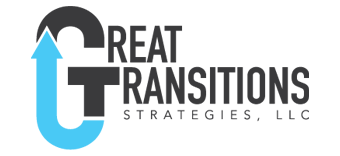Develop Your Emotional Intelligence and Use EQi2.0 as Your Development Tool
Today is one of those nightmare travel days. Busy airport, bad weather causing lots of cancellations. Sitting in the gate area you witness an irate passenger berating the associate behind the desk. His flight was cancelled and he is loudly taking his frustration out on the associate. Some folks have moved away from him and others are looking to see what all the commotion is about.
Your project has been delayed and you have to deliver the news to your supervisor. Previous experiences have you approaching this meeting with a lot of anxiety. You never know how she is going to react. Sometimes she is reasonable and others completely volatile.
These are two examples of low emotional intelligence. Both individuals are unaware the impact their emotions have on themself and others.
What is Emotional intelligence (EQ)?
It is understanding your emotions, and how to use them to interact with others, make decisions, build relationships, and handle stress.
Why develop your emotional intelligence?
Emotional Intelligence is an important part of who you are. It defines how you lead and interact with the world around you. The second; EQ can be measured and developed.
An Important Part of Who You Are
High EQ equals high self-awareness. Which, in my opinion, is the most important skill a leader can have. Being aware of your triggers, your impact on others, and the ability to read the room differentiates effective leaders.
Research in the area of executive presence confirms high emotional intelligence is a key component of executive presence.
EQ Can Be Measured and Developed
How do you know if you have emotional intelligence? You measure it. There are a number of emotional intelligence assessments that have proven EQ can be measured. The assessments are validated, reliable, and normed. Validated means the assessment is measuring what it is supposed to measure. Reliable – the test is consistent. Normed – the results are compared against specific populations such as a global norm (all ages, genders, and positions) or a leader’s norm (only individuals identifying as leaders).
Emotional intelligence can be developed. Each element of emotional intelligence relates an individual’s behaviors and attitudes. Which drives how they interact with the world around them. Behaviors and attitudes can be modified through education, training, and building awareness. Therefore, emotional intelligence can be developed.
Why Use EQi2.0 as Your Emotional Intelligence Measurement and Development Tool
The EQi2.0 assessment has been around for a while, is validated, reliable, normed, and offers multiple reports to include a 360 report. As a leadership and executive coach, I believe the 360 is the most valuable.
The EQi2.0 is a self-report assessment, measuring an individual’s level of emotional intelligence as reported by him or herself. The 360 adds the perspective of other raters; managers, peers, direct reports, and others who know the person well. All raters are chosen by the individual and with the exception of the manager report anonymously. Raters also have the opportunity to provide direct feedback by answering open ended questions.
The result: a detailed report comparing the individual’s perceptions of emotional intelligence against other who experience that individual regularly. This provides extensive data to inform a leader where they are strong and areas to develop.
The “Gap Analysis” is always eye opening for a leader. Seeing how their perception differs from those they lead is enlightening and powerful. It provides feedback that is actionable on how to lead more effectively.
Want to be a more effective leader? Develop your EQ.
What would be the impact on your leadership effectiveness if you improved your emotional intelligence by 10%.
Gary Slyman is an executive coach certified in the EQi2.0. Contact him for further information on using the assessment for your leadership development. www.greattransitionsstrategies.com.






